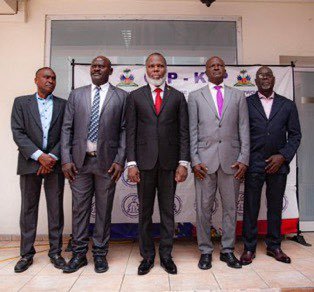Par Patrick Prézeau Stephenson
Introduction
As Haiti prepares for its next elections, the formation and functioning of the Provisional Electoral Council (CEP) is of paramount importance. By learning from historical precedents, particularly the relatively successful elections of 1990-1991, we can draw valuable lessons and make recommendations to ensure a credible and transparent electoral process. Patrick Tardieu, a key worker in the 1990-1991 elections, provides insightful comments that can guide the current CEP [1]. This article critically examines Tardieu’s thoughts and proposes an overall strategy for the next CEP.
Lessons from the 1990-1991 Elections
1. Establishment of a Clear Electoral Calendar
The 1990-1991 elections benefited from a well-defined timetable. The CEP was established in April 1990, with elections held in December of the same year and a second round in January 1991. This clear timetable allowed for adequate preparation and minimized uncertainties. For the upcoming elections, the CEP should establish a realistic and transparent timetable well in advance, so that all stakeholders are informed and can prepare accordingly.
2. Ensuring Security through Collaboration
Security was a crucial element during the 1990-1991 elections. The CEP worked closely with the army, holding regular meetings with the nine departmental commanders. This ensured a coordinated effort to maintain order and address security concerns. For the upcoming elections, the CEP should establish a robust security framework, possibly involving forces like the Kenyan-led Multinational Security Mission (MMSS), to ensure the safety of voters, candidates and election staff.
3. Creation of a Reliable Electoral List
In 1990, the electoral roll was reliable and trustworthy, unlike current problems with the Dermalog system, where multiple registrations and fraudulent cards are common. The CEP must reform the voter registration process, ensuring that it is transparent and secure. This could involve the use of technology, rigorous verification processes and the involvement of independent auditors to oversee the registration.
4. Decentralization of the Electoral Process
Tardieu underlines the importance of decentralization during the 1990-1991 elections. At the time, each Departmental Electoral Office (BED) was autonomous and responsible for announcing the results, thus reducing the possibilities of centralized fraud. The current reliance on a central tabulation center, established in 2006, has been a source of widespread manipulation [3]. The CEP should return to a decentralized model where local offices manage and announce results, with results publicly displayed at each polling station for verification by citizens and observers.
5. Strengthening Civic Education and Political Engagement
The 1990-1991 elections saw extensive civic education efforts, with numerous videos and releases explaining the voting process. This initiative was crucial in increasing voter awareness and participation. The CEP must invest in a comprehensive civic education campaign, using modern technologies and social media to reach a wider audience. Collaboration with local organizations and international partners can improve the effectiveness of these campaigns.
6. Appointment of Competent and Non-Partisan Electoral Advisors
Competence and impartiality are crucial to the credibility of the CEP. In 1990, the CEP not only included nine competent advisors, but also had the support of international experts. The next CEP should ensure the appointment of highly qualified and non-partisan members. Additionally, the involvement of international experts can provide valuable oversight and technical support, enhancing the overall credibility of the electoral process.
Meeting Modern Challenges
Use of Technology
Implement secure and transparent digital systems for voter registration, voting and tabulation of results. This can reduce human errors and opportunities for fraud.
Diaspora Engagement
The Haitian diaspora, estimated at approximately 3.7 million people, or approximately 12% of the Haitian population, plays a crucial role in Haiti’s socio-economic landscape. With significant numbers residing in North and South America, including 1.5 million in the United States alone, contributions from the diaspora, particularly through remittances, are vital. Recent reports indicate that diaspora remittances represent nearly 31.2% of Haiti’s GDP, highlighting their economic influence and importance.
One of the constant demands of the diaspora community is the right to participate in Haitian elections. Granting this right would not only honor their contributions, but also strengthen the democratic process by including a significant portion of the currently excluded Haitian population. To address this, the Provisional Electoral Council (CEP) should consider leveraging modern technology, such as electronic voting, to facilitate the inclusion of eligible members of the diaspora in the electoral process. Implementing electronic voting can ensure that the diaspora has a voice in shaping Haiti’s future while improving the transparency and efficiency of the electoral process.
Strengthening Legal Frameworks
Work with legal experts to update and strengthen electoral laws, ensuring they respond to contemporary challenges and ambiguities that could undermine the electoral process.
Conclusion
The upcoming elections in Haiti represent a crucial turning point for the country’s democracy. By building on the successful elements of the 1990-1991 elections and addressing contemporary challenges, the CEP can lay the foundations for a credible and transparent electoral process. Implementing these recommendations requires commitment, collaboration and a relentless focus on integrity and transparency. It is only through such concerted efforts that Haiti can hope to achieve a truly democratic and inclusive electoral process that reflects the will of its people.
References
[1] Tardieu, Patrick. Personal communications via email,· Jun 19, 2024.
[2] Haiti Remittances Estimated at Nearly 31.2 % of GDP (haitinewstoday.com)
[3] Cherubin, Ginette. Rotten belly of the beast (The). Publisher: State University of Haiti; ISBN ZL011501;
Contact Media Patrick Prézeau Stephenson: Editor [email protected]
Similar articles





